05 Nov 2018
Book Launch Event
Masterpieces of Australian Contemporary Literature Series No.6: This House of Grief: The Story of a Murder Trial by Helen Garner
Book Launch Event
Masterpieces of Australian Contemporary Literature Series No.6: This House of Grief: The Story of a Murder Trial by Helen Garner
Author Helen Garner was joined by Japanese Naoki Prize winning author Kyoko Nakajima whose works are renowned for encapsulating the essence of the times. The book’s Japanese translator, Professor Megumi Kato acted as the moderator of the discussion which revolved around the theme: “What does This House of Grief: The Story of a Murder Trial tell us? – Australian and Japanese perspectives on the non-fiction novel which covers the murder trial of a man accused of the death of his three children” as part of Australia now.
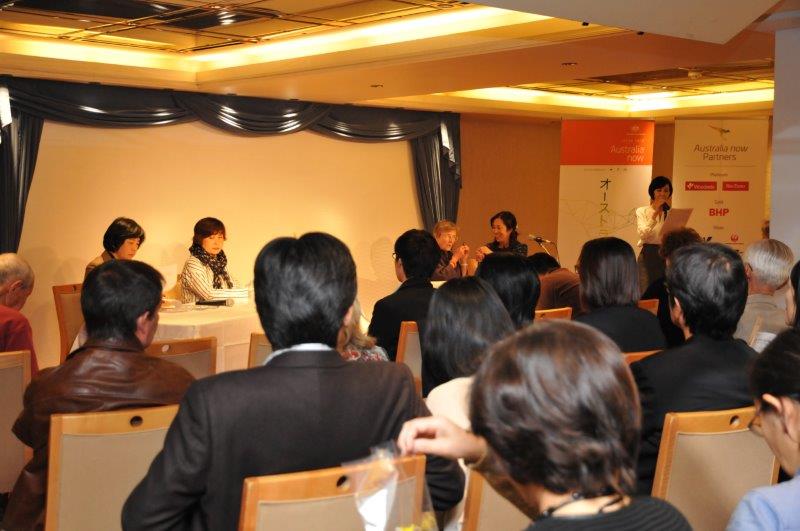
© Australian Embassy
This ten year project translating contemporary Australian novels into Japanese and publishing them annually (by Gendai Kikakushitsu) was established in 2012 with the continuing support of the Australia-Japan Foundation. This House of Grief: The Story of a Murder Trial is the sixth book in the series and its first non-fiction work. The novel should be categorised in the creative non-fiction genre as it is based on a real incident that took place in Australia. She invested seven years attending court trials and recreated her experience using only facts and observations to absorb the reader into the story and live it as she did.

© Australian Embassy
The story begins at dusk on 4 September 2005, in the outskirts of a rural town in Victoria. A separated husband, was driving his three sons home to their mother, when his car left the road and plunged into a dam. All three boys drowned, but Robert survived. Was this an act of revenge or a tragic accident? She followed this controversial court case closely on its protracted course until the final verdict. She presents the theatre of the courtroom with its actors and audience, all gathered for the purpose of bearing witness to the truth, players in the extraordinary and unpredictable drama of the quest for justice.
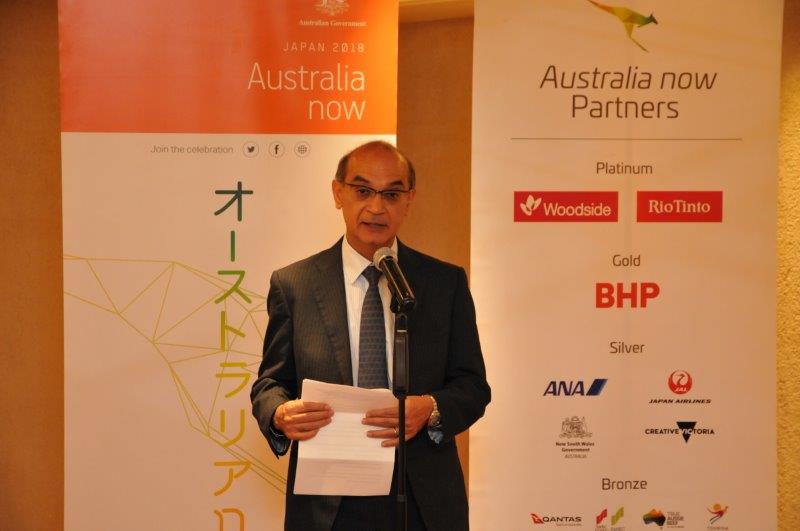
© Australian Embassy
After Deputy Head of Mission, Bassim Blazey’s opening greeting, the panel session commenced with Garner’s speech titled “A Love Song to the Law”. She explored how she gained interest in court trials, which roots from her impactful first experience of the court room 30 years ago. She was observing a murder trial where the victim was the daughter of her close friend and hence felt a very personal connection to the case. That was the first time she had set foot in the Supreme Court and the experience of merely observing the hearing left her both physically and mentally exhausted like never before. However, she states that it was also the catalyst of her awakening to the “spirit of the laws” and as a matter of fact, she was being drawn deeper and deeper into the case. She continued by explaining that the emotions she felt from her first-hand experience of the “way of the law” and the “spirit of the laws” was unique to that experience 30 years ago.
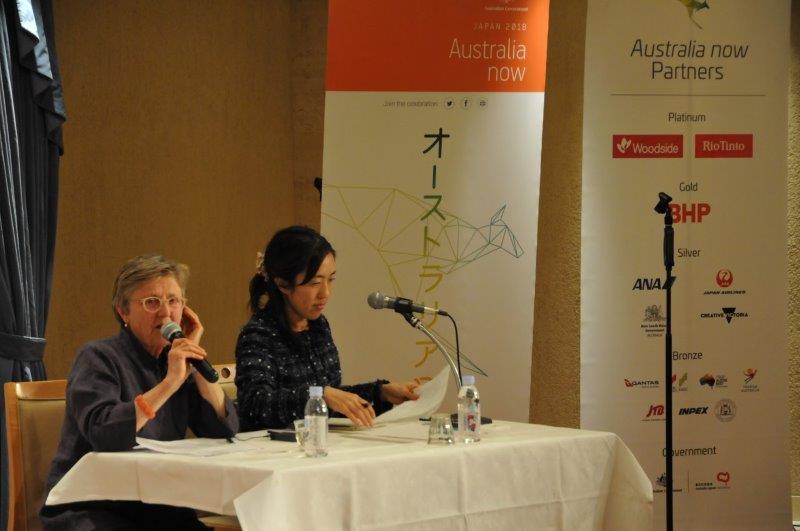
© Australian Embassy
The seven years of observing the trials for this book required immense endurance and she went through a great deal of distress in order to complete the novel. Garner learnt that you will be able to develop a strong interest in complicated issues that is difficult to understand if you persevere and pay close attention. If you do so, even these topics will become interesting. Exploring the fairness and cleanliness of the law in the face of people’s pain, and understanding the justness and construction of such law is the foundation of this book. She concluded with stating that her intrinsic motivation to attend the court trials roots in being able to see such “laws” in action right in front of her.
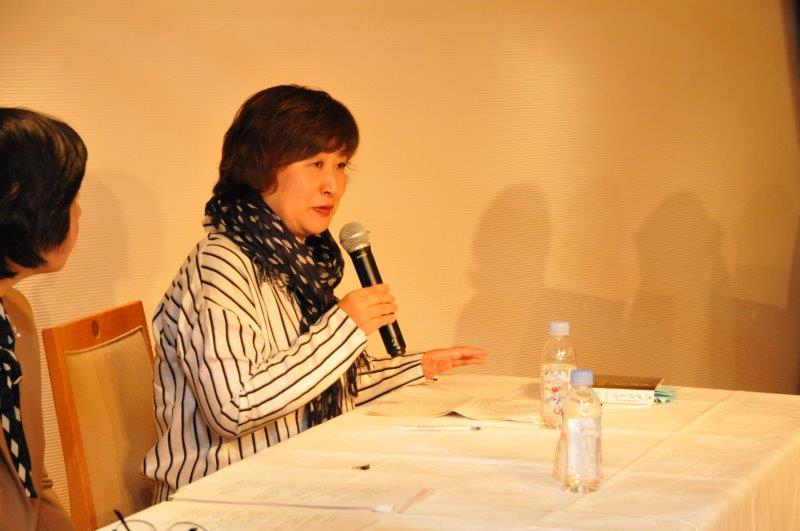
© Australian Embassy
Following Garner’s presentation, the discussion with Japanese author Nakajima began by sharing her thoughts and impressions on the book and raised the question “Is it okay to find an unfortunate incident like this interesting and enjoyable?” She states that the novel explores the overflowing humanity that cannot be fully captured by law alone.
After receiving Nakajima’s reflection, Garner states that Nakajima’s feeling of a “never-ending chaos” and being unable to see the conclusion or the direction of how the story will unfold is exactly what Garner intended for her readers to experience.
Having the idea of “maintaining ignorance” in her mind, Garner wanted to provide her readers with the perspective of being in the moment of the story unfolding rather than recounting a story in retrospect. Nakajima found common ground in Garner’s approach to when she wrote her representative novel “Chiisai Ouchi”, which is observing and paying close attention to details no matter how small in order to allow the readers to feel like they are in the scene.
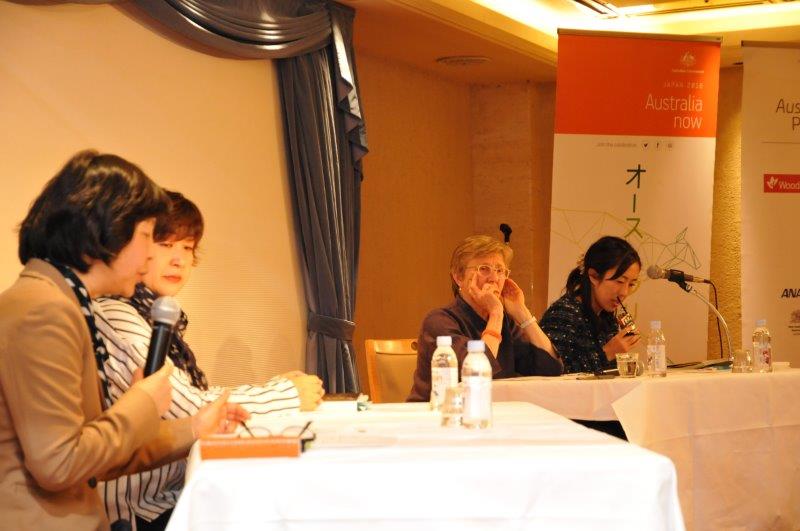
© Australian Embassy
Finally, Kato, the moderator, questioned both authors if they were happy with the quality of the film adaptions of their works. Garner and Nakajima both agreed that the films are different to the original publications and that it is impossible for novels to be transformed into a film as they are. However, they expressed that seeing the worlds that they have created being turned into a film is indeed interesting.
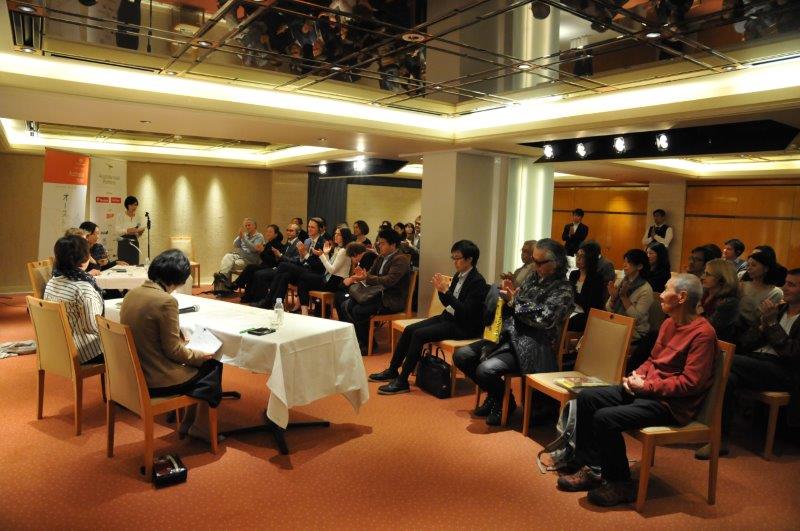
© Australian Embassy
Mutual understanding was established between the Australian and Japanese authors during their discussion of the non-fiction work of a man being accused of murdering his three sons. They shared a similar approach in writing, which is to progress the narrative by noticing and observing the small details. They also shared their perspectives on various other topics with the audience during their discussion and before anyone realised, it was already the conclusion of the session.
Top
